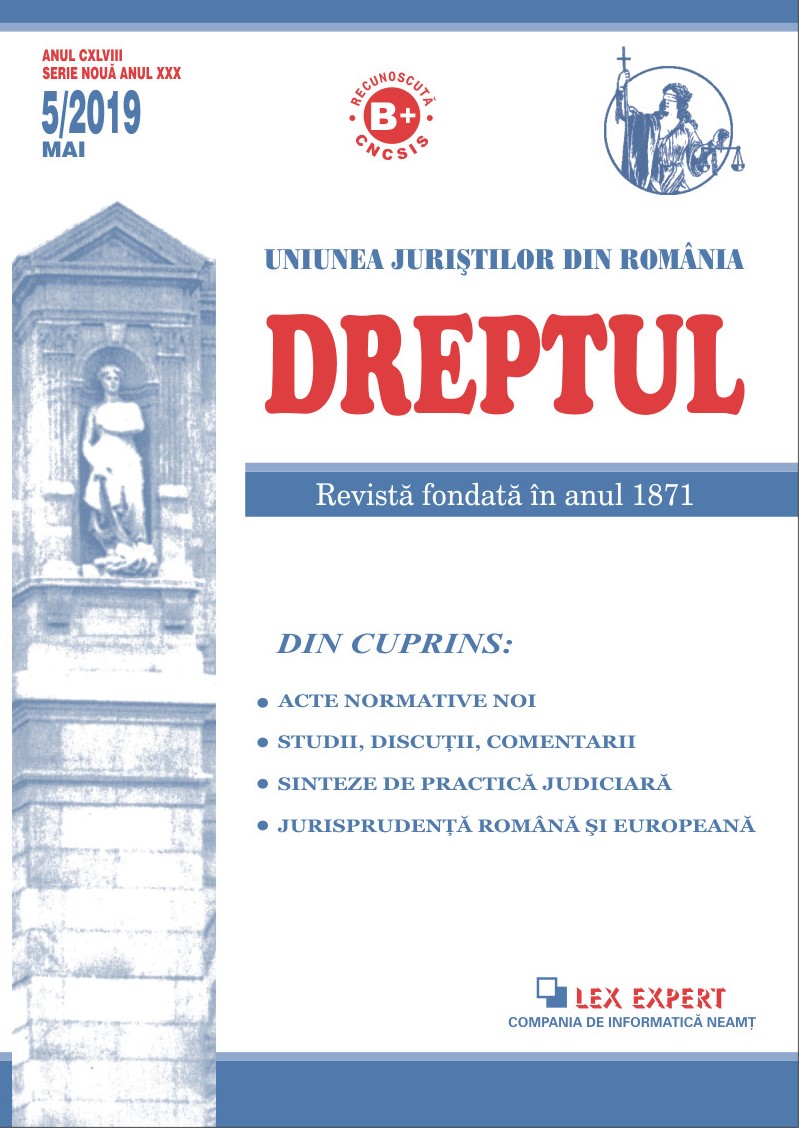Controverse vizând timbrarea cererilor de chemare în judecată
Controversies concerning the stamping of the applications for summons
Author(s): Emilian-Floria PopescuSubject(s): Civil Law
Published by: Uniunea Juriștilor din România
Keywords: debtor of the stamp duty; beneficiary of the stamp duty; finality of the application; principles in matters of stamping;
Summary/Abstract: The legislation on the matter of stamp duties, although it should be free of problems of interpretation, is no exception to the fact that the interpretation is the one that generates problems in the application of legal norms.The related controversies reveal that the current regulation inclusive is far from the desideratum to maintain a fair balance between the public interest to collect these budgetary resources in the quantum envisaged by the legislator and the interest of the litigant not to have the relevant legislation interpreted to his detriment.There are difficulties concerning the determination in practice of the actions which the legislator regulates generically by formulating „cash assessable actions and claims”, a phrase used in Article 3 (1) of the Government Emergency Ordinance No 80/2013. The same situation we encounter in the case of applications determined by the phrase „applications not assessable in cash”, phrase used in Article 27 of the Government Emergency Ordinance No 80/2013, with which the legislator intends to cover all the categories of applications not regulated in the previous texts.Other difficulties, revealed inclusively by the decisions of the High Court of Cassation and Justice, concern the interpretation of the phrase „different finality”, used in Article 34 (1) of the Government Emergency Ordinance No 80/2013, for the situation of the actions with multiple claims.Since these three phrases evoke genuine principles underlying the manner of regulation used by the legislator in the matter, by the controversies reviewed, the study argues either the necessity of the minimum approach of defining the terms contained therein by the author of the normative act, or that of rewriting it pursuant to an inventory of the objects of the claims encountered in the judicial practice. This inventory is easy to obtain by the legislator from the courts, with the necessity to update it, after taking over in the normative act of domain, either by the regulations that generate new categories of applications addressed to the justice, or by amending accordingly the normative act having as object exclusively the stamp duty fees.However, this regulatory manner is used by the legislator in the legislation by which it establishes tax obligations, duties and taxes respectively.It is easy to imagine the implications of some norms susceptible to interpretation in this latter matter, which, in essence, has the same nature as the one in question.
Journal: Revista „Dreptul”
- Issue Year: 2019
- Issue No: 05
- Page Range: 76-95
- Page Count: 20
- Language: Romanian
- Content File-PDF

